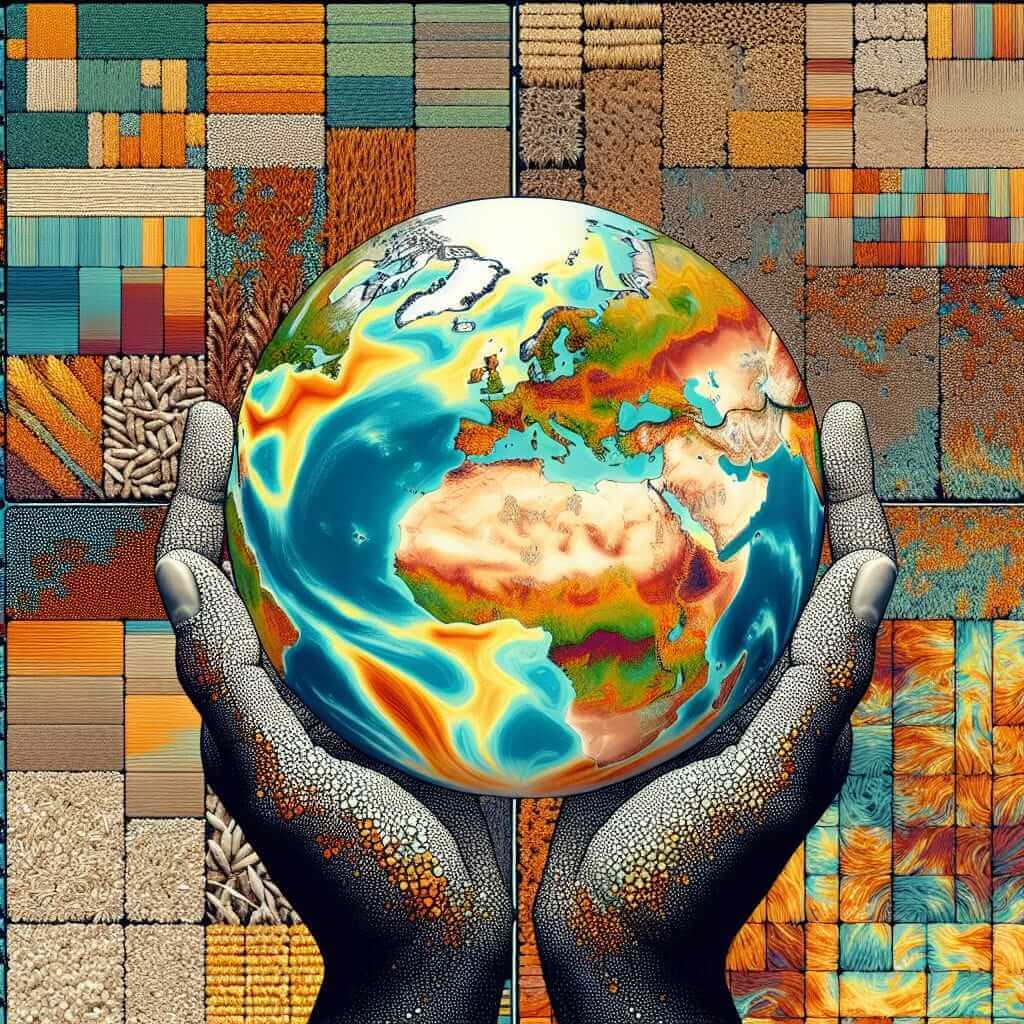The IELTS Reading section tests a candidate’s ability to read and comprehend English through various text types, including articles, essays, and reports. Among the relevant topics, the effects of climate change, particularly on global agriculture, have frequently appeared due to their global significance. Understanding this topic not only equips you with the potential to answer related questions but also enhances your knowledge on a critical contemporary issue.
Over the years, the repercussions of climate change on agriculture have become increasingly evident. This topic has been seen in IELTS exams due to its urgency and worldwide impact. Given its relevance and the likelihood of its appearance in future IELTS exams, understanding this topic is immensely beneficial.
Reading Passage
The Effects of Climate Change on Global Agriculture
Climate change, characterized by rising temperatures, altered precipitation patterns, and more frequent extreme weather events, has far-reaching consequences on global agriculture. These changes pose serious threats to food production, food security, and farmers’ livelihoods across the world.
Impact on Crop Yield
One of the most immediate impacts of climate change on agriculture is the fluctuation in crop yields. Increased temperatures can accelerate crop maturation, reduce growing seasons, and thus diminish yields. Heat stress can adversely affect both the quality and quantity of crops. For instance, wheat, one of the world’s staple foods, is extremely sensitive to temperature changes. Studies suggest that for each degree Celsius increase in temperature, wheat yields could fall by 6%.

Water Availability
Water availability is another critical factor influenced by climate change. Altered precipitation patterns lead to droughts and floods, severely impacting irrigation. Regions dependent on consistent rainfall for agriculture are particularly vulnerable. For instance, Sub-Saharan Africa and South Asia have faced unprecedented droughts, leading to crop failures and food shortages.
Pests and Diseases
Climate change also affects the prevalence of pests and diseases. Warmer temperatures create favorable conditions for many pests and pathogens, leading to increased infestations and crop diseases. This not only reduces yields but also increases the cost of pest control, which farmers might find hard to afford.
Soil Health
Soil health is crucial for sustainable agriculture. Climate change impacts soil through erosion, nutrient loss, and decreased organic matter. Heavy rainfall and flooding wash away topsoil, which is vital for nutrient-rich plant growth. Conversely, drought conditions can make the soil more saline, reducing its productivity.
Exemplary Agriculture Practices
Despite these challenges, there are adaptive strategies that can mitigate the negative impacts of climate change on agriculture. Practices such as crop diversification, conservation tillage, and precision farming aim to enhance resilience. Crop diversification reduces risk by cultivating a variety of crops, thereby minimizing the impact of any single crop failure.
Reading Questions
Reading Questions (Easy Text)
-
Multiple Choice
- What main factor has caused the fluctuation in crop yields due to climate change?
A. Increased use of pesticides
B. Increased temperatures
C. Reduced rainfall
D. Soil contamination
- What main factor has caused the fluctuation in crop yields due to climate change?
-
True/False/Not Given
- Water availability is unaffected by climate change.
- Warmer temperatures can increase pest infestation.
- Crop diversification exacerbates the effects of climate change.
-
Matching Information
-
Match the problems related to climate change with their corresponding consequences on agriculture:
a. Increased temperatures
b. Altered precipitation patterns
c. Enhanced pest populationsi. Pest infestations
ii. Reduced yields
iii. Water shortages
-
-
Sentence Completion
- Soil health is affected by climate change through and .
Answer Key
-
Multiple Choice
- B. Increased temperatures
-
True/False/Not Given
- False.
- True.
- Not Given.
-
Matching Information
- a – ii
- b – iii
- c – i
-
Sentence Completion
- Soil health is affected by climate change through erosion and nutrient loss.
Lessons Learned
Common mistakes often occur with not fully understanding the details in the passage or misinterpreting the information. It is crucial to practice skimming for overall understanding and scanning for specific details. Also, ensuring that you understand the context of certain words or phrases can significantly increase your accuracy in answering questions.
Vocabulary
- Precipitation (noun) /ˌprɛsɪˈpɪteɪʃ(ə)n/: Rain, snow, sleet, or hail that falls to the ground.
- Saline (adj) /ˈseɪliːn/: Containing or impregnated with salt.
- Mitigate (verb) /ˈmɪtɪˌɡeɪt/: Make less severe, serious, or painful.
Grammar
- Present Perfect Tense: Used to highlight actions that have occurred at an indefinite time in the past but are relevant to the present. Example: “Climate change has increased the frequency of extreme weather events.”
- Conditional Sentences: Used for hypothetical situations. Example: “If temperatures rise by 2°C, crop yields will decrease significantly.”
Advice for High Reading Scores
- Practice Regularly: Familiarize yourself with various topics, especially those that are contemporary and globally significant.
- Develop Skimming and Scanning Techniques: These skills help in quickly locating information without reading the entire text.
- Improve Vocabulary: A strong vocabulary helps in better understanding the text and answering questions accurately.
- Time Management: Practice under timed conditions to enhance your speed and efficiency during the actual exam.
For further insight into related topics, consider exploring the impact of climate change on global food supply and the overall effects of climate change on agriculture.
By thoroughly preparing on these lines, you are likely to improve your performance in the IELTS Reading section and secure a higher score.